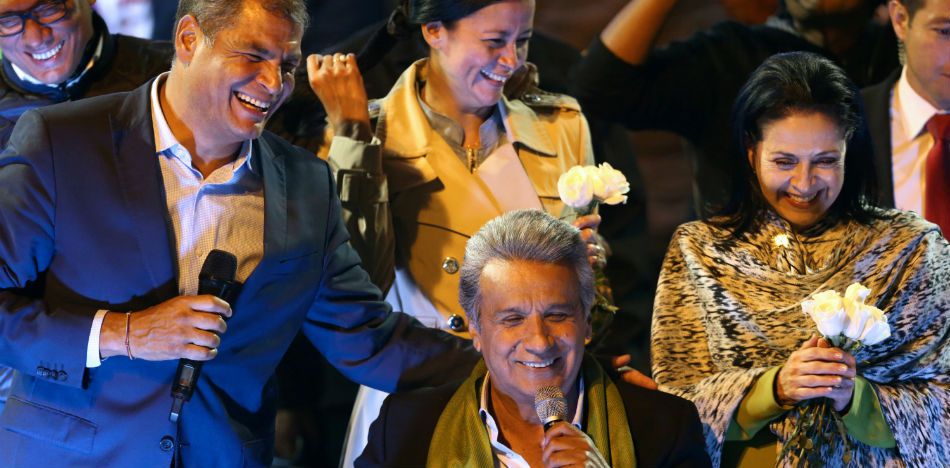
On Wednesday, The Human Rights Foundation (HRF) condemned the administrative and judicial processes used as a means to silence independent media, opposition members, and pollsters after the Ecuadorian presidential elections.
The aforementioned organization is referencing the sanctions imposed by the Superintendence of Information and Communication (Supercom) on seven media outlets, since they did not publish a report from an Argentinian newspaper that accused opposition candidate Guillermo Lasso of “illicit enrichment.”
- Read More: Ecuadorian News Anchor Responds to President Correa’s Accusation of Forged Exit Poll Reporting
- Read More: The Case for Demanding a Recount in Ecuador’s Presidential Election
Meanwhile, HRF rejects the criminal prosecution, as well as the death threats made against officials and the companies Cedatos and Corporation Citizen Participation, which published results of the polls that claimed Lasso won the elections and stated that this was a “technical tie” with the ruling party’s candidate, former vice president Lenin Moreno.
“After an election contest that was neither free nor fair, nor arbitrated by a reliable and impartial electoral system, Rafael Correa‘s authoritarian regime has been reelected via his former vice-president Lenin Moreno, and this is evident in the judicial persecution, abusive raids, and multiple sanctions that have taken place after the election,” said Thor Halvorssen, HRF president.
On April 7, pollster Cedatos’ office was raided, and files and computers were sezied. The following day President Rafael Correa publicly stated: “It’s time to say enough to the fakers.”
In a statement, Halvorssen states that “Despite being Correa’s successor, Lenin Moreno today has the unique opportunity to change the state of press freedom and restore a full democratic system in Ecuador, where the press and democratic opposition are not constantly persecuted by the Government.”
However, the director warns that a change “can not be achieved through tweets and declarations asking for ‘tolerance’ from the regime’s judges.” The first step to achieve Ecuador’s democratization must be the repeal of the draconian Organic Law of Communication. Moreno must give guarantees of independence to the judiciary and radically change the authoritarian guidelines of Supercom and other state offices that have been a mere branch of Correa’s authoritarian regime.”
Halvorssen believes that if Moreno does not make the profound changes in favor of democracy and freedom of the press that Ecuador needs, “he will miss the opportunity to go down in history as a democrat, and instead will be seen as Correa’s authoritarian appendix.”
 Versión Español
Versión Español












